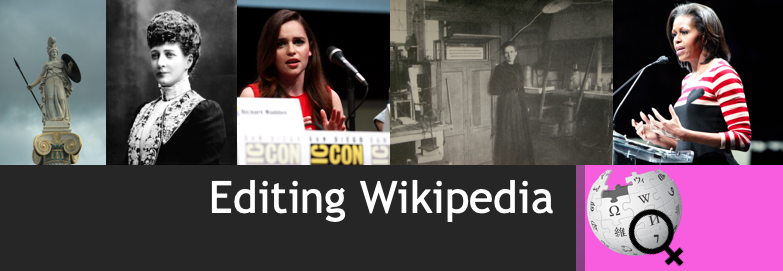Most of my history lessons throughout primary and secondary school were about great men and their achievements. Later on, during my first year of anthropology at University, this trend continued as we were going through anthropological history. Classic pieces were written by men, about men.
But what about the women in history? Where are they? The quick answer? Most women have been written out of history. An issue which the Wiki-edit-a-thon event on March 8th 2019 sought to do something about – by writing women back into history, thus working for the United Nations Sustainable Development Goal Nr. 5, Gender Equality.
As part of International Women’s Day UNYA, in collaboration with the Zebra Partnership, held the ‘Wiki-edit-a-thon’ at the International House, Aalborg.
“Wikipedia famously bears one of the starkest gender gaps in contemporary culture.” – New York Magazine
With tables set up providing snacks and coffee, participants of the event could, from 16.00 – 20.00, act as editors by rewriting existing articles, writing new articles and translating Wikipedia-pages into multiple languages.
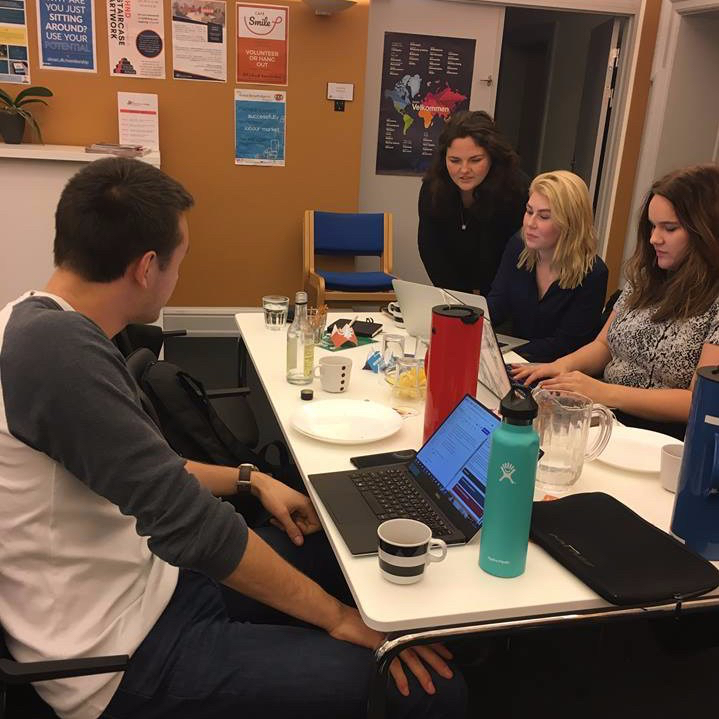
A few of the attendees present at the event helping each other out with some technicalities (Photo by: Lea Thies).
The event started out with a presentation from the organisers of the event, Lea Thies and Elias Mark, followed by a video with greetings from the founder of the initiative, The Zebra Partnership, Carol Ann Whitehead. What originally started the initiative was a Twitter conversation between the mayor as well as the Women of London. Following this, a strategy was made and a group was formed by bringing other organisations together, thus resulting in Wiki-edit-a-thons not just in Great Britain, but around the world, making partnerships and collaboration a core feature.
Of the current 29 million pages on Wikipedia, only 17% of women are on these pages. Of the 17%, only 10% of the contributors are women, therefore leaving many women underrepresented on Wikipedia.
After the heartwarming video by Whitehead, participants were instructed in detail on how to edit the Wikipedia pages. Examples of articles on Wikipedia in need of editing are; articles using sexist/biased language, articles where women are referred to as ‘girls’ or ‘ladies’, women being defined by their relationship to men instead of their accomplishments, or the articles simply don’t exist.
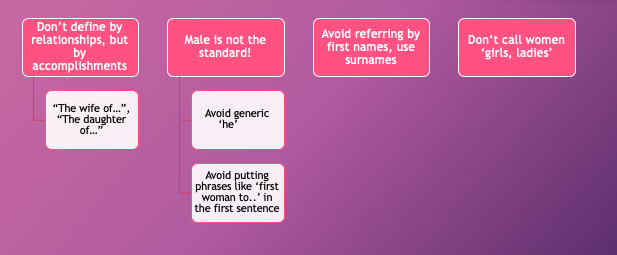
A brief guideline, included by the organisers of the event, on how to go about editing women’s articles on Wikipedia.
As we were introduced to the Wikipedia articles in need of editing, I made the mistake of pressing a button on my laptop which resulted in the page moving to the bottom of the list on the site. In order to get back to the start of the page, I, therefore, had to scroll up for what seemed like an eternity. This in itself was proof that there is still much to be done in relation to the representation of women in history.
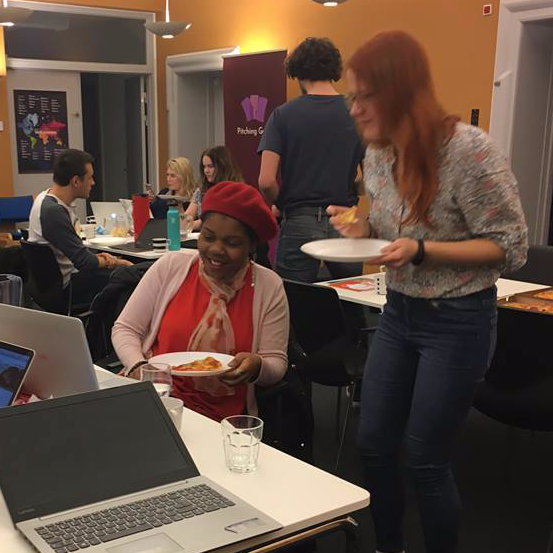
The attendees eating their pizza after several hours of hard work editing articles (Photo by: Lea Thies).
Throughout the whole event, there was an atmosphere of collaboration and inclusion. As stated by Elias Mark, “Everything we do is good. A little change is great”, and “[it] is a learning experience for all of us”, in regards to the event. Some of the participants had difficulty, myself included, with the technical side of editing. However, everyone helped each other out whenever possible.
By the end of the event, many of the participants expressed interest in continuing the work, and as expressed by Carol Ann Whitehead, “Being involved in the Wiki-edit-a-thon is not a one-off, it is like a relationship, like finding a partner. It is not just a peck on the cheek. It is a long-term relationship”. Much like my situation at the bottom of the list of Wikipedia articles to edit, there is a long way for us to collectively scroll up to achieve gender equality, and this initiative is a scroll in the right direction.
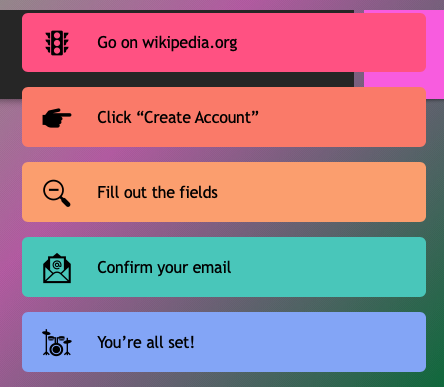
Created by the organisers of the event, here is a step by step diagram on how to get your own Wikipedia-edit-a-thon started! Check out the ‘Women in red’ and ‘Articles in need of attention’ links below to see which articles need editing 🙂
Links to get started:
Article by: Liv Inuk Oldenburg Lynge
Article Edited by: Michaela Higgins Sørensen
